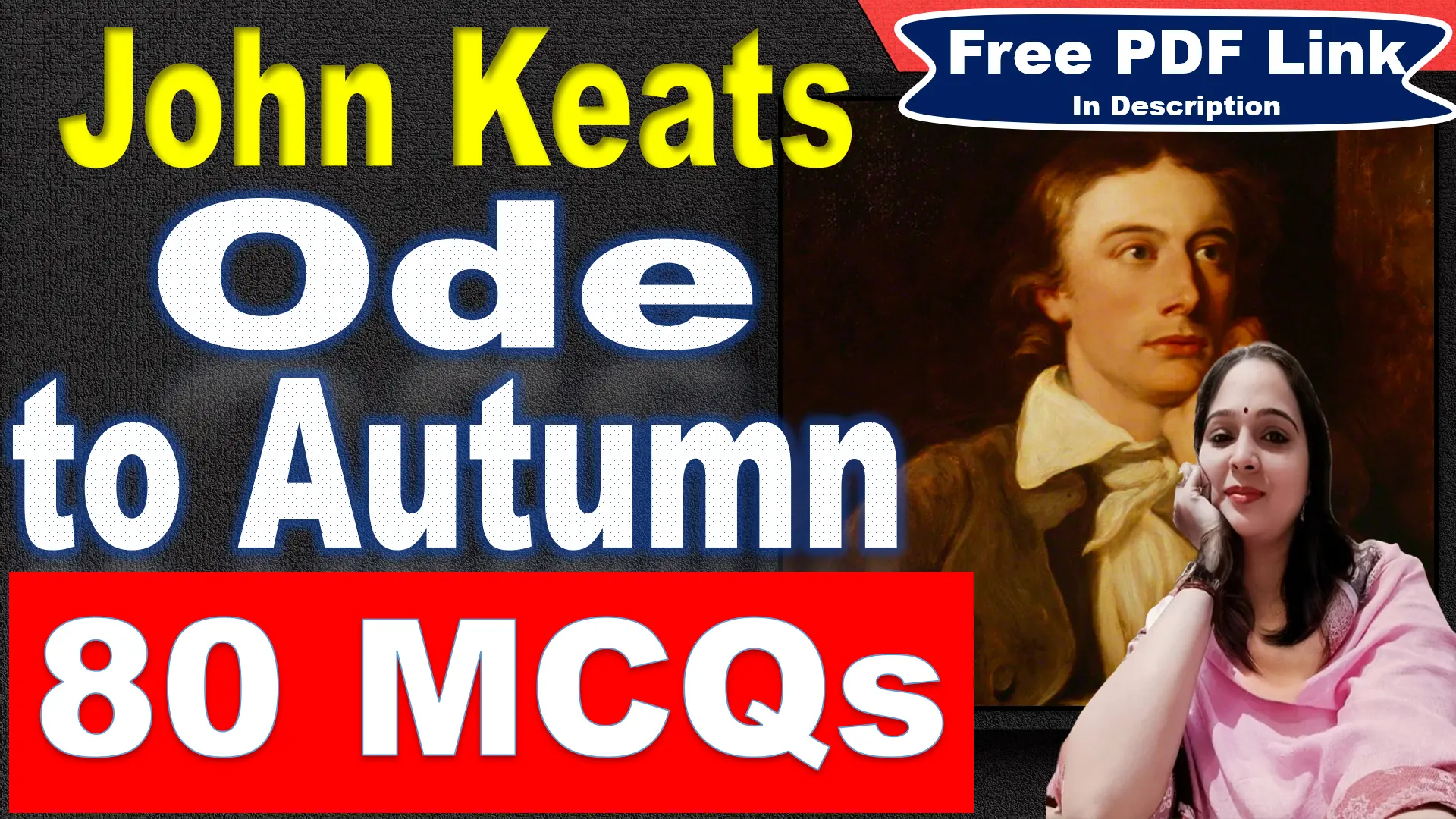
The Visitor by Nissim Ezekiel Summary
Nissim Ezekiel’s poem “The Visitor” appears in his 1976 collection Hymns in Darkness, which is known for its deep exploration of personal reflection and themes of spirituality, human connection, and the nuances of daily life. This collection holds a prominent place in Ezekiel’s body of work, as it showcases his mature poetic style and contemplative approach.
“The Visitor” is a thought-provoking poem that delves into themes of anticipation, disillusionment, and the mundane aspects of existence. The poem begins with the appearance of a crow at the speaker’s window, a traditional symbol often associated with doom or an ominous event. The crow’s three caws create an atmosphere of suspense, as the speaker begins to wonder about an impending visitor. The speaker reflects on the nature of this potential arrival, imagining whether it could be an angel in disguise or a temptation poised to test his resolve and disrupt his peaceful night.
When the visitor finally arrives, however, the speaker is met with disappointment. Rather than a moment of significance, the encounter is ordinary. The visitor comes empty-handed, and the interaction is filled with trivial conversation, marked by smoking and the passage of time. Far from being the anticipated figure of importance, the visitor turns out to be just another person passing time, highlighting how the speaker’s expectations had been misplaced.
In the concluding lines, the speaker contemplates the reality of life’s events. He reflects on how, aside from the “miracles of mind” and the dramatic meanings we often attach to life’s stages—such as sex and the changing seasons—most experiences are unremarkable. The poem communicates a subtle sense of disillusionment, as the speaker comes to terms with the idea that the extraordinary moments we often seek are seldom found. Through the metaphor of the visitor, Ezekiel suggests that much of life is made up of ordinary occurrences, and the grand experiences we anticipate are rare. The poem offers a meditation on the human inclination to search for deeper meaning in the everyday, only to discover that the routine and mundane make up a larger part of existence.
The Visitor by Nissim Ezekiel Key Points
Author
Nissim Ezekiel (1924–2004) was a notable Indian poet, playwright, and essayist, regarded as a key figure in shaping modern Indian English literature. His work frequently delves into themes of identity, spirituality, and the intricacies of everyday life, often with a tone of introspection and irony. The Visitor is one of Ezekiel’s contemplative poems, exploring themes of expectation, disappointment, and the commonplace aspects of life.
Form (Rhyme Scheme)
The Visitor is crafted in free verse, meaning it does not adhere to a fixed rhyme scheme or meter. This structure gives Ezekiel flexibility to focus on the poem’s reflective nature and thematic flow without the constraints of formal patterns. The poem unfolds in natural stanzas, which align with the speaker’s stream of thought.
Speaker
The speaker in the poem is reflective and introspective, grappling with the tension between their expectations and reality. Initially, they anticipate a significant or even mystical encounter—either in the form of an angelic presence or a moral challenge—but come to realize that the actual experience is far more mundane. The speaker’s voice is philosophical, sensitive, and ultimately disillusioned, exposing their internal reflections on life’s ordinary realities.
Setting
The setting of the poem is largely internal, focusing on the speaker’s mental and emotional landscape. While physical elements such as the crow at the window and the room filled with cigarette smoke are present, the true setting is the speaker’s inner world. The absence of a specific time or place lends the poem a timeless, universal quality, enhancing its broader themes.
Theme
The primary theme of The Visitor is the contrast between expectation and reality. The speaker expects a significant or transformative event after seeing the crow, only to find that the actual encounter is disappointingly ordinary. Ezekiel explores how humans often attach deep meaning to seemingly significant events, only to be reminded that much of life is composed of mundane experiences. Other themes include disillusionment, the routine rhythms of life, and the human tendency to seek deeper meaning in the everyday.
Plot
The poem opens with the speaker observing a crow at the window, which they interpret as a sign of an impending important visitor. Throughout the day, the speaker waits, speculating whether the visitor could be an angel or a force of temptation, possibly there to test their morals. When the visitor finally arrives, they are simply someone “killing time” without any significant purpose. The interaction is shallow, leading the speaker to reflect on the discrepancy between their expectations and the reality. In the end, the speaker comes to understand that most events in life are ordinary, aside from the rare “miracles of mind” and natural cycles of existence.
Tone
The tone of the poem shifts as the narrative unfolds. Initially, there is a sense of anticipation and tension, with the speaker anxiously awaiting a significant event. As the reality of the visitor’s ordinariness becomes clear, the tone turns to disappointment. By the conclusion, the tone has shifted to one of acceptance and reflection, as the speaker comes to terms with the everyday nature of life.
Style
Ezekiel’s style in this poem is meditative and understated, with a focus on introspection. He uses simple language to explore deep philosophical themes, relying on imagery, metaphor, and symbolism to express the speaker’s internal journey. The free verse form enhances this contemplative style, allowing the poem to flow naturally, mimicking the speaker’s reflective thought process. The use of enjambment gives the poem a fluid, introspective rhythm, reflecting the speaker’s wandering thoughts.
Message
The core message of The Visitor is that life is primarily made up of ordinary, mundane moments, and that our expectations of profound or significant experiences often lead to disappointment. Ezekiel suggests that humans have a tendency to ascribe deep meaning to everyday occurrences, only to later realize that most events are far simpler than they initially appeared. The poem encourages an acceptance of life’s ordinary rhythms—such as “the ebb-flow of sex and the seasons”—rather than an endless search for grandeur or transformation. Through this, Ezekiel offers a meditation on humility, acceptance, and the recognition of life’s inherent simplicity.
Nissim Ezekiel
Nissim Ezekiel (1924–2004) was a highly influential Indian poet, playwright, essayist, and critic, recognized as a foundational figure in modern Indian English literature. Born in Bombay (now Mumbai) to a Jewish family of Bene Israel descent, Ezekiel’s works often reflect his exploration of identity, alienation, and the complexities of human relationships, along with the spiritual and existential dilemmas of contemporary life.
Early Life and Education
Ezekiel grew up in a modest Jewish family in India and pursued his education at Wilson College in Mumbai, where he earned a degree in literature. In 1948, he traveled to England to study philosophy at Birkbeck College, University of London. This experience exposed him to Western intellectual traditions, significantly shaping his literary perspective.
Literary Career
Ezekiel’s literary journey took flight in the 1950s with the publication of his first poetry collection, A Time to Change (1952). He was an integral part of the post-independence Indian English literary scene, contributing alongside poets like Kamala Das and Dom Moraes. His poetry often combined Indian cultural elements with modernist techniques, addressing themes like urban life, identity, and existential reflections.
Some of his most notable works include:
A Time to Change (1952)
Sixty Poems (1953)
The Unfinished Man (1960)
Hymns in Darkness (1976)
These collections highlight Ezekiel’s range, from contemplative spiritual themes to insightful social commentary and satirical critiques of Indian life.
Themes and Style
Ezekiel’s poetry frequently examines identity, spirituality, self-doubt, and the quest for meaning in a changing world. He also explored feelings of alienation in modern society, particularly in post-colonial India. His work is marked by clarity, precision, and a restrained use of irony and humor. Ezekiel’s understated style—often using simple, direct language—allowed him to explore deep, complex emotions with a distinct sense of control.
Contribution to Indian English Literature
Ezekiel played a key role in making Indian English poetry more relatable, grounding it in the daily realities of urban life. While maintaining an Indian voice, he embraced modernist ideals, incorporating irony, colloquial language, and themes of personal and existential struggles. His contributions helped give Indian English poetry a fresh, modern edge. Beyond his own writing, Ezekiel nurtured emerging poets and worked as an editor for several literary journals, significantly shaping the evolution of English literature in India.
Legacy
In 1983, Nissim Ezekiel received the Sahitya Akademi Award for his poetry collection Latter-Day Psalms. He is celebrated as one of India’s most accomplished English-language poets, with a lasting influence on contemporary Indian poetry. His work bridged Indian literature with global literary trends, making him a central figure in postcolonial literature. Ezekiel passed away in 2004, leaving behind a legacy of introspective, often ironic, and thought-provoking poetry that continues to inspire readers and writers.
Word Meaning
| Tough Word | Meaning in English | Meaning in Hindi |
| Cawed | The sound a crow makes | कौए की आवाज |
| Baleful | Threatening or harmful | खतरा या हानिकारक |
| Sinister poise | A creepy or scary stance | डरावनी स्थिति |
| Craned | Stretched the neck to look | देखने के लिए गर्दन उठाना |
| Nagging | Complaining often | बार-बार शिकायत करना |
| Floated down | Came down gently | हल्के से नीचे आना |
| Cope | To handle or manage | सामना करना |
| Terms | Rules of an agreement | समझौते की शर्तें |
| Compromise | An agreement where both give up something | समझौता |
| Befits | Is suitable for | उपयुक्त होना |
| Folk | People in general | लोग |
| Angel in disguise | A good person who looks different | छिपा हुआ अच्छा व्यक्ति |
| Temptation | A desire to do something bad | बुरा करने की इच्छा |
| Ruin | To completely destroy | पूरी तरह से बर्बाद करना |
| Kill a little time | To pass time while waiting | समय बिताना |
| Substantial | Important or significant | महत्वपूर्ण |
| Foresee | To see or predict the future | भविष्य में देखने या अनुमान लगाना |
| The figure in the carpet blazing | A clear pattern or meaning hidden | कालीन में छिपा हुआ स्पष्ट अर्थ |
| Ebb-flow | The rise and fall of something | चढ़ाव और उतार |





